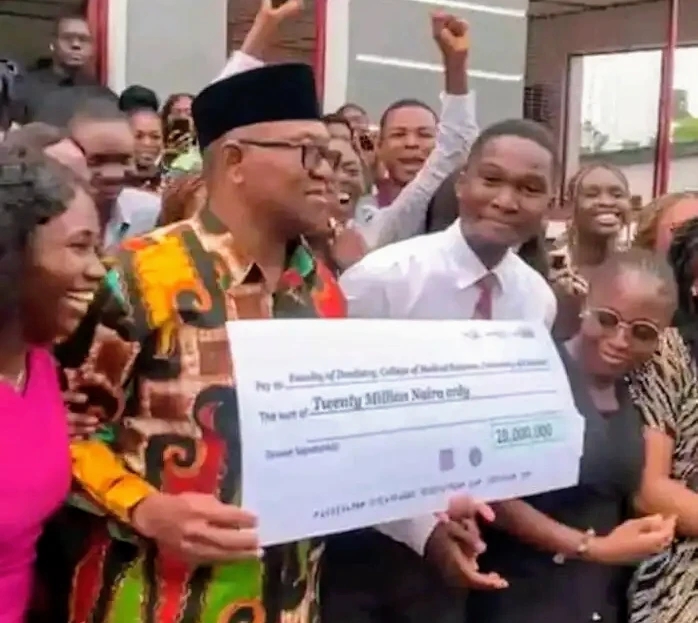Nigerian politician Peter Obi, who contested the 2023 presidential election under the Labor Party, donated 20 million naira (approximately $13,400) to the University of Calabar’s dentistry department on Friday, emphasizing the need to prioritize education and healthcare over political largesse. The funds, handed over during a visit to the southern Nigerian institution, are earmarked for purchasing five dental chairs to address equipment shortages, according to the News Agency of Nigeria (NAN).
Speaking to students and faculty, Obi criticized systemic mismanagement of public resources, contrasting the urgent needs of educational institutions with lavish spending on politicians. “N20 million will buy five dental chairs,” he said. “But we have a society where millions fund luxury vehicles for leaders while students lack basic tools. Our schools struggle with inadequate labs, classrooms, and seating, yet politicians live extravagantly. This imbalance is unacceptable.”
The former Anambra State governor framed his donation as part of a broader call to redirect Nigeria’s priorities toward measurable development. “We must dismantle this broken system and invest in education, healthcare, and poverty alleviation,” he asserted, stressing that governance should center on empowering marginalized citizens. “My mission is to build a society where a child from any background can rise to their full potential.”
Obi, a businessman-turned-politician known for his austere public image, also addressed speculation about his political future ahead of Nigeria’s 2027 elections. While affirming his intention to run, he urged current leaders to focus on immediate crises. “Rather than debating 2027, we should be discussing why ordinary Nigerians can’t afford food, education, or healthcare,” he said. “I was once a student like these young people—this is why I fight for equitable progress.”
His remarks come amid rising public frustration over inflation, infrastructure gaps, and perceived elite indifference in Africa’s most populous nation. The University of Calabar, a federal institution founded in 1975, has faced recurrent funding challenges, reflecting broader struggles in Nigeria’s tertiary education sector. Dental programs, often resource-intensive, face particular hurdles; a 2023 report by the National Universities Commission noted that 60% of dental schools lacked essential equipment.
Though Obi did not elaborate on policy alternatives, his critique aligns with longstanding debates about Nigeria’s budget allocations. In 2024, the government earmarked 8% of its budget for education—far below the UNESCO-recommended 15–20%—while recurrent expenditures, including officeholder entitlements, accounted for 58%. Analysts argue such disparities deepen inequality in a country where 63% of citizens live in poverty.
The event concluded with Obi reiterating his commitment to systemic change. “Accountable leadership isn’t optional,” he said. “We either invest in our people’s future or risk losing generations to neglect.” His pledge to re-enter the political arena signals continued activism, blending philanthropy with calls for structural reform.
